Parallel monochromatic beam is falling normally on two slits S1 and S2 separated by d as shown in figure. By some mechanism, the separation between the slits S3 and S4 can be changed. The intensity is measured at the point P which is at the common perpendicular bisector of S1S2 and S3S4. When z=Dλ2d, the intensity measured at P is I. and when z is equal to 4Dλd, Intensity is xl. Find x.
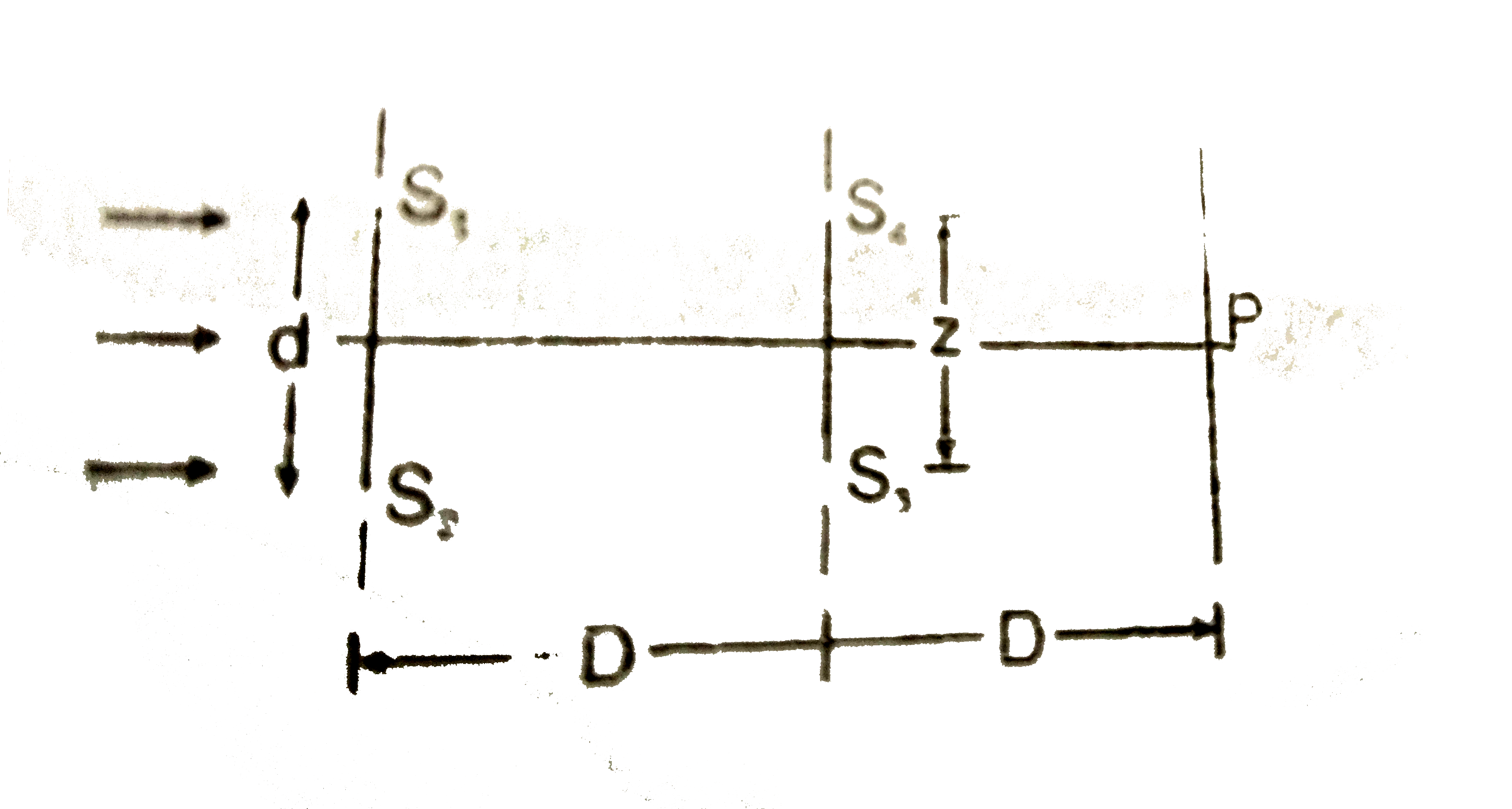
The correct Answer is:2
Where Z=Dλ2d=β2⇒OS4=β4 as shown.
If intensity at 'p' is I then intensity of light at S3 and S4 is I/4&I/4
∴ Path difference S4P−S3P=0
So, intensity of slits S1 and S2
Δϕ at S4
Δp=ydD=dD(z2)=λ4
Δϕ=2πλ.λ4=π2
I4−IR=I1+I1+2√I1I1cos'π2
I1=I2=I8 intensity of S1 and S2.
If z=4.λDd=4β
Δp=ydD=z2.dD=(4λDd)×12×dD=2λ
Δϕ=2πλ.2d=4π
I3=I4=I8+I8+2I8cos4π=12
at 'p'Ip=I2+I2+2√I2.I2cos0∘
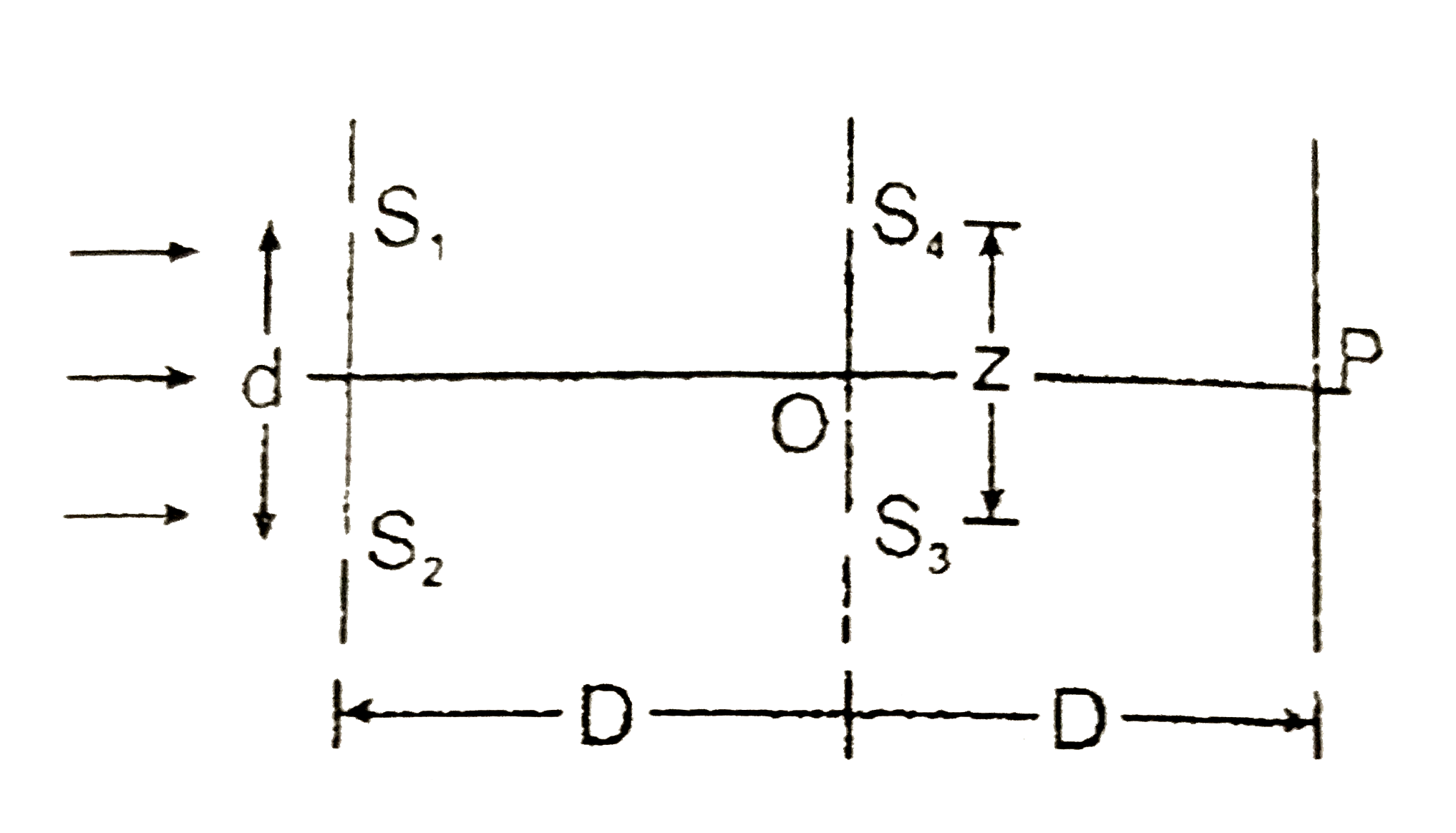
Topper's Solved these Questions
- WAVE OPTICSBook:RESONANCEChapter:WAVE OPTICSExercise:Exercise-2 (Part-3)
Explore 5 Videos
- WAVE OPTICSBook:RESONANCEChapter:WAVE OPTICSExercise:Exercise-2 (Part-4)
Explore 8 Videos
- WAVE OPTICSBook:RESONANCEChapter:WAVE OPTICSExercise:Exercise-2 (Part-1)
Explore 10 Videos
- WAVE ON STRING Book:RESONANCEChapter:WAVE ON STRING Exercise:Exercise- 3 PART I
Explore 19 Videos
Similar Questions
Consider the arrangement shown in figure. By some mechanism,
the separation between the slits S3andS4 can be changed. The intensity is
measured at the point P which is at the common perpendicular bisector of S1S2
and S3S4. When z=Dλ2d, the intensity measured at P is I. Find the intensity when
z is equal to
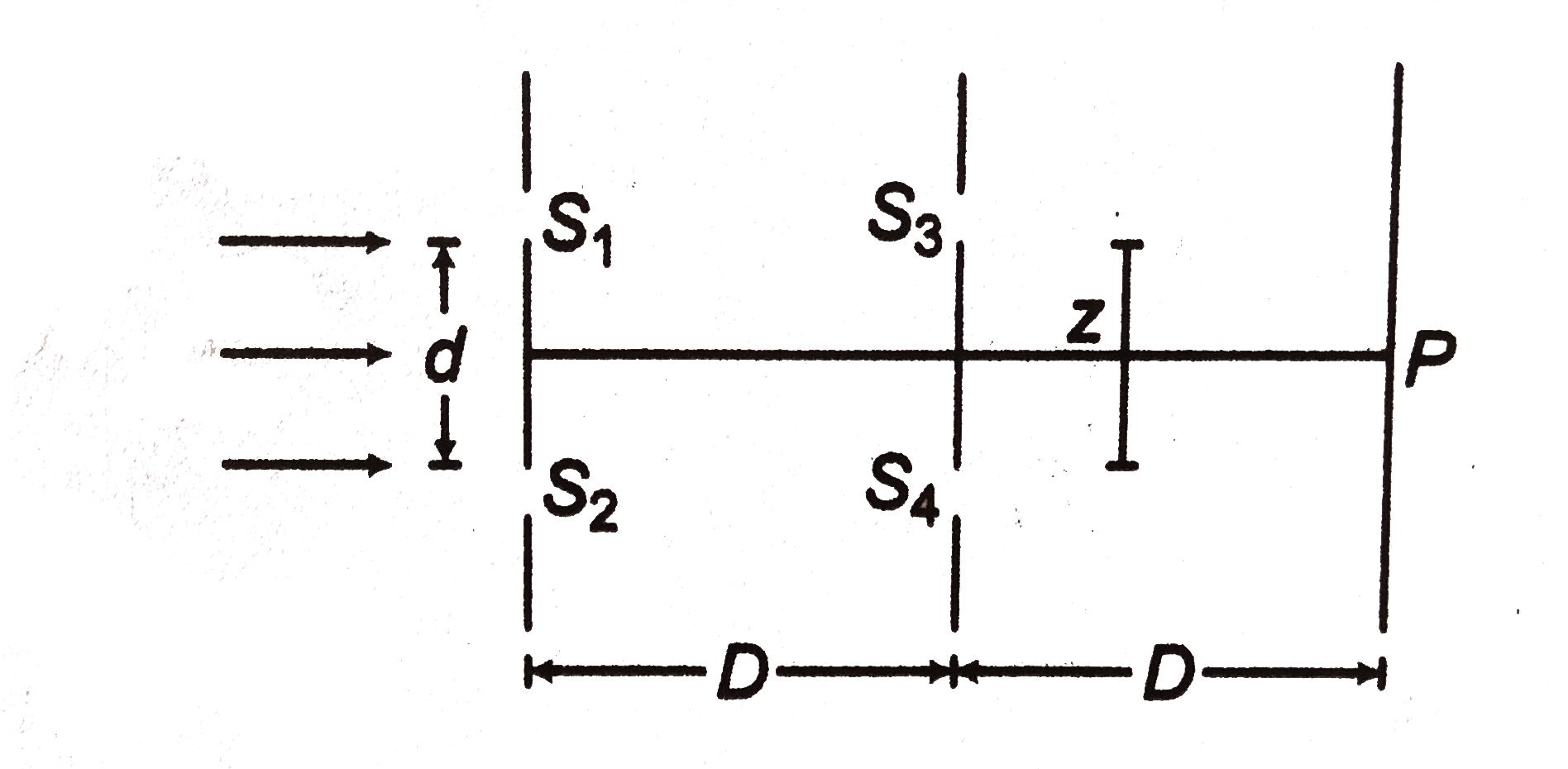
(a)Dλd(b)3Dλ2d(c)2Dλd .
View SolutionConsider the arrangement shownin figure. By some mechanism,the separation between the slits S3andS4 can be changed. The intensity in measured at the point P which is at the common perpendicular bisector of S1S2andS3S4.Whenz=(Dlamda)/(2d)the∫ensitymeasuredatPisI.F∈dthis∫ensitywhenzisequal→<br>a.Dλd,b.3Dλ2d,c.2Dλd

View Solution
Knowledge Check
In the arrangement shown in Fig., slits S1 and S4are having a variable separation Z. Point O on the screen is at the common perpendicular bisector of S1S2 and S3S4.
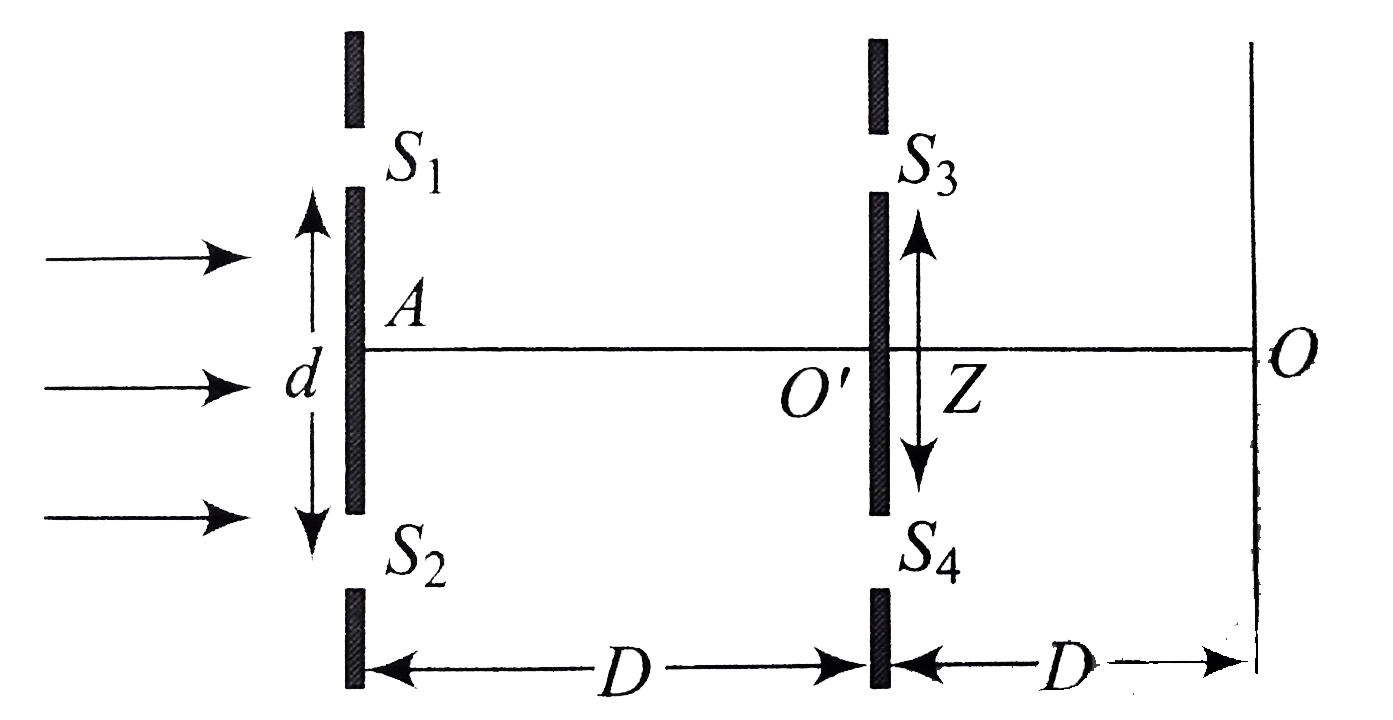
When Z=λD2d, the intensity measured at O is I0. The intensity at O When Z=2λDd isAI0B2I0C3I0D4I0In the arrangement shown in Fig., slits S1 and S4are having a variable separation Z. Point O on the screen is at the common perpendicular bisector of S1S2 and S3S4.
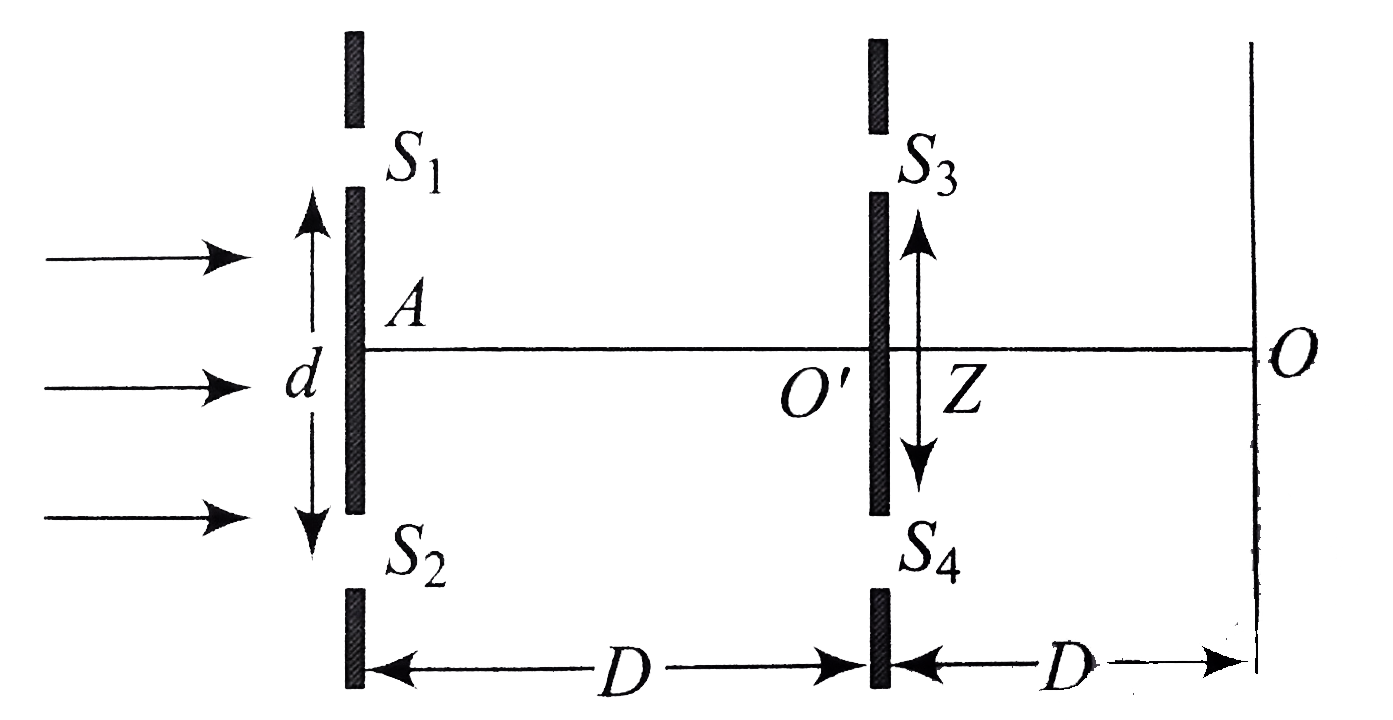
The minimum value of Z for which the intensity at O is zero isA2λDdBλD2dCλD3dDλDdIn the arrangement shown in Fig., slits S1 and S4are having a variable separation Z. Point O on the screen is at the common perpendicular bisector of S1S2 and S3S4.
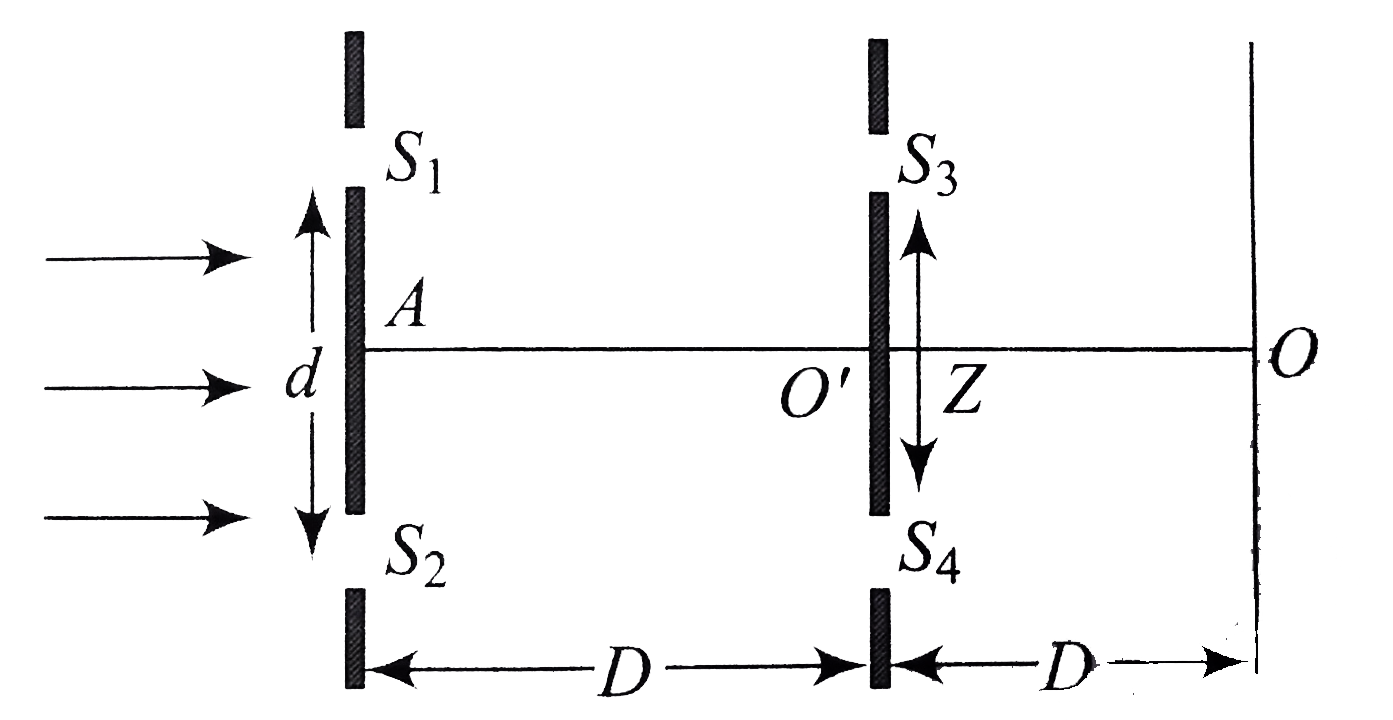
If a hole is made at O' on AO' O and the slit S4 is closed, then the ratio of the maximum to minimum observed on screen at O , if O'S3 is equal to λD4d, isA1BinfinityC34D4
In the Young's double slit experiment apparatus shown in figure Δx is P the path difference between S2P and. S1P. Now a glass slab is introduced in front of S2 , then match the following


View SolutionIn arrangement shown in figure, plane wavefront of monochromatic light of wavelength λ is incident on identical slits S1 and S2. There is another pair of indentical slits S3 and S4 which are having separation Z=λD2d Point O is on the screen at the common perpendicular bisector of S1S2 and S3S4.I1 is the intensity at point O Now the board having slits S3S4 is moved upward parallel to itself and perpendicular to line AO till slit S4 is on line AO and it is observed that now intensity at point O is I2 then I2I1 is :
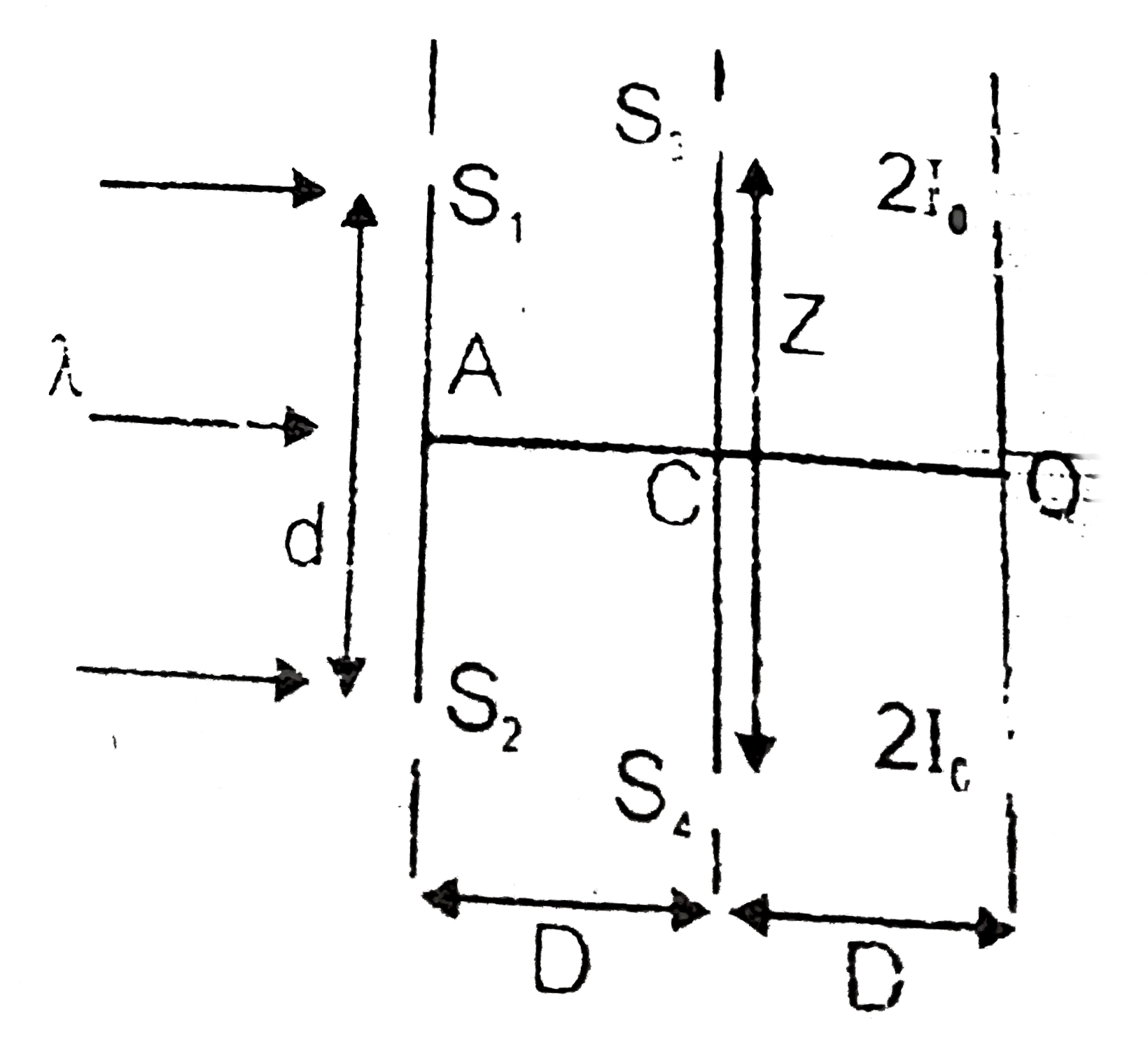
View SolutionA coherent light is incident on two paralle slits S1andS2. At a point P1 the frings will be dark if the phase difference between the rays coming from S1andS2 is
View SolutionS1andS2 are two coherent sources. The intensity of both sources are same. If the intensity at the point of maxima is 4Wm−2, the intensity of each source is
View Solution_E01_054_Q01.png)
A monochromatic light source of wavelength λ is placed at S. three slits S1,S2 and S3 are equidistant from the source S and the point P on the screen S1P−S2P=λ/6 and S1P−S3P=2λ/3. if I be the intensity at P when only one slit is open the intensity at P when all the three slits are open is-
View Solution

